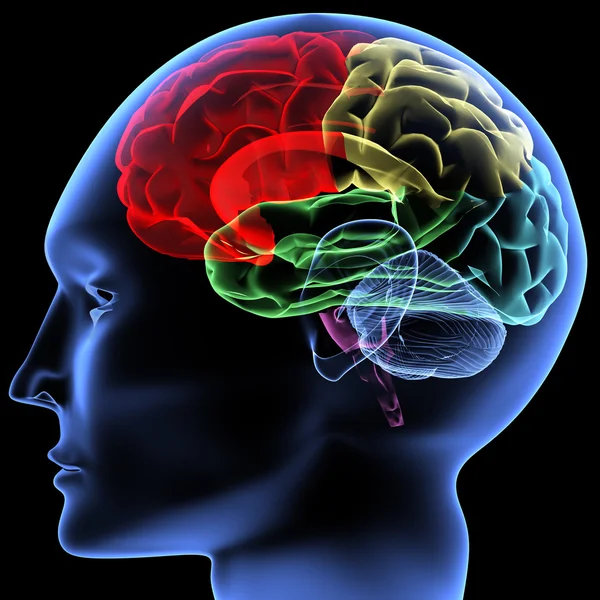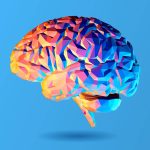Emotions are an essential aspect of the human experience, influencing our thoughts, behaviors, and overall well-being. The underlying chemistry of emotions lies within the intricate workings of our brains. Neurotransmitters, the brain’s chemical messengers, play a crucial role in regulating our emotions. Let’s explore the primary chemicals responsible for releasing emotions in the human brain and understand their impact on our mental state and behavior.
1. Serotonin – The Happiness Hormone
Serotonin, often referred to as the “happiness hormone,” is one of the primary neurotransmitters that regulate emotions. It is produced mainly in the brain, but also in the digestive tract. Serotonin plays a vital role in mood stabilization and can impact feelings of happiness, contentment, and even overall well-being. Low levels of serotonin have been linked to depression and anxiety disorders, while higher levels are associated with feelings of calmness and satisfaction.
In addition to mood regulation, serotonin also contributes to various bodily functions such as appetite, sleep, and memory. Certain medications, like selective serotonin reuptake inhibitors (SSRIs), work by increasing the availability of serotonin in the brain, providing relief to individuals suffering from depression and other mood disorders.
2. Dopamine – The Reward and Pleasure Chemical
Dopamine is the neurotransmitter associated with pleasure, reward, and motivation. It plays a critical role in the brain’s reward system, reinforcing behaviors that bring joy or satisfaction. Dopamine levels surge when we engage in activities like eating delicious food, achieving goals, or engaging in pleasurable experiences. This surge of dopamine creates a sense of reward and encourages us to repeat those actions.
Additionally, dopamine is connected to learning and memory. It helps us associate certain actions with positive or negative outcomes, guiding our decision-making processes. However, imbalances in dopamine levels have been linked to addictive behaviors, such as drug abuse or compulsive gambling, where individuals seek constant rewards to maintain dopamine surges.
3. Oxytocin – The Love and Bonding Hormone
Often referred to as the “love hormone” or “bonding hormone,” oxytocin is responsible for building social connections, trust, and empathy. This neurotransmitter is released in large amounts during activities that promote bonding, such as hugging, kissing, or engaging in intimate relationships. Oxytocin enhances feelings of attachment, compassion, and affection, promoting social bonding between individuals.
Beyond its role in building interpersonal relationships, oxytocin has significant effects during childbirth and breastfeeding. It helps facilitate labor contractions and encourages maternal-infant bonding, reinforcing the emotional connection between mother and child.
4. Endorphins – The Natural Painkillers
Endorphins are neurotransmitters that act as natural painkillers and mood elevators. When the body experiences stress or pain, endorphins are released to alleviate discomfort and enhance feelings of pleasure. These chemicals are often associated with the “runner’s high,” where intense physical activity triggers a surge of endorphins, creating a sense of euphoria and well-being.
Endorphins not only help with pain management but also play a role in reducing anxiety and stress. Engaging in activities like exercise, laughter, or even eating spicy food can trigger the release of endorphins, leading to a temporary boost in mood.
5. Cortisol – The Stress Hormone
While the previous neurotransmitters are associated with positive emotions, cortisol, a steroid hormone, plays a significant role in the stress response. When we encounter a stressful situation, cortisol is released to prepare our body for the “fight or flight” response. In small doses, cortisol helps us respond to challenges and stay alert.
However, chronic stress can lead to elevated levels of cortisol, which may have detrimental effects on our physical and mental health. Prolonged exposure to high cortisol levels is associated with anxiety, depression, sleep disturbances, and impaired immune function.
Understanding the primary chemicals that release emotions in the human brain provides valuable insights into the complexity of our emotions and behavior. Serotonin, dopamine, oxytocin, endorphins, and cortisol all play critical roles in shaping our emotional experiences and responses to the world around us. By recognizing the significance of these neurotransmitters, researchers and healthcare professionals can develop new strategies to support mental health and overall well-being. As we continue to unlock the mysteries of the brain’s chemistry, we move closer to creating a healthier, happier world for ourselves and others.



